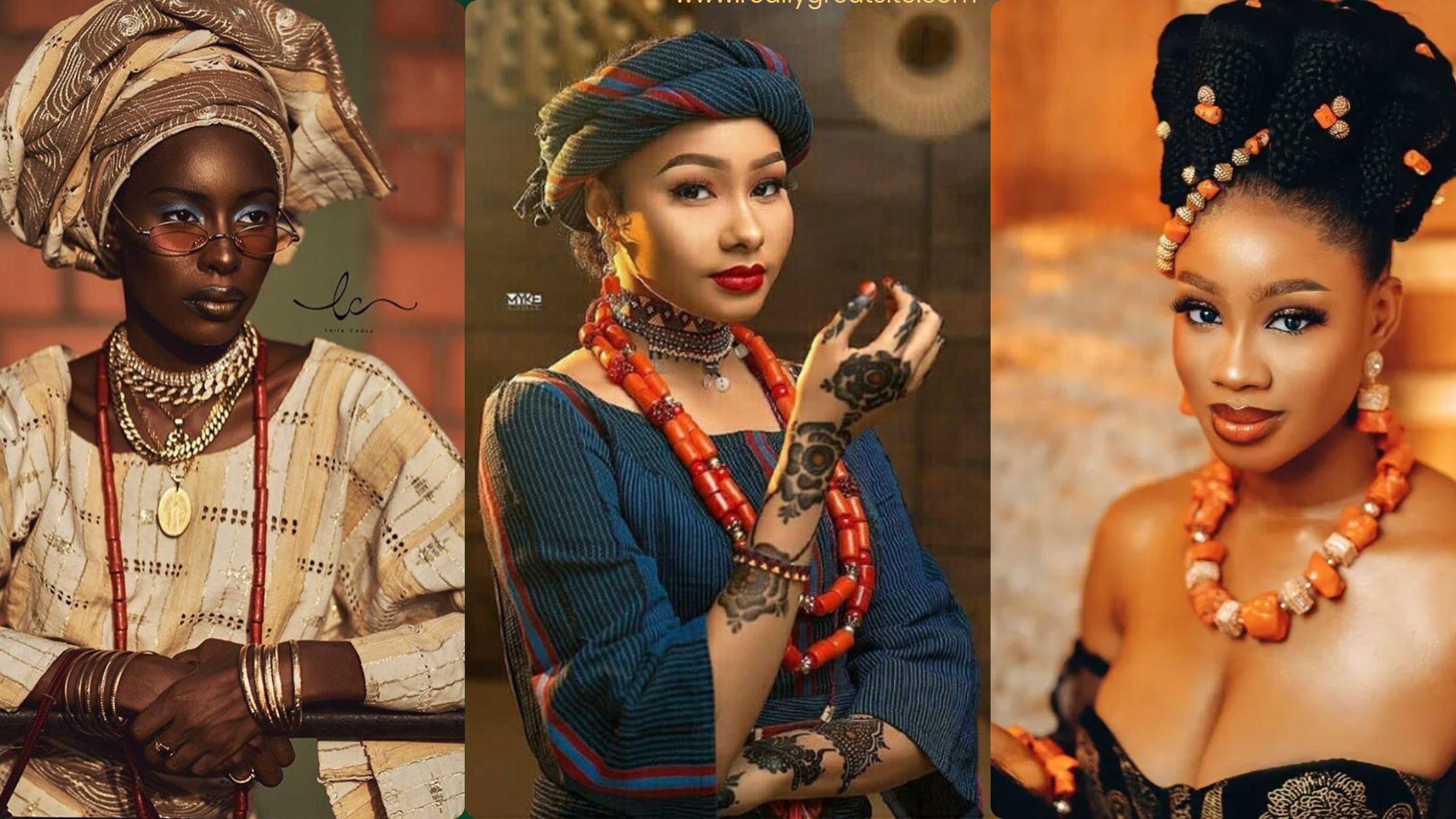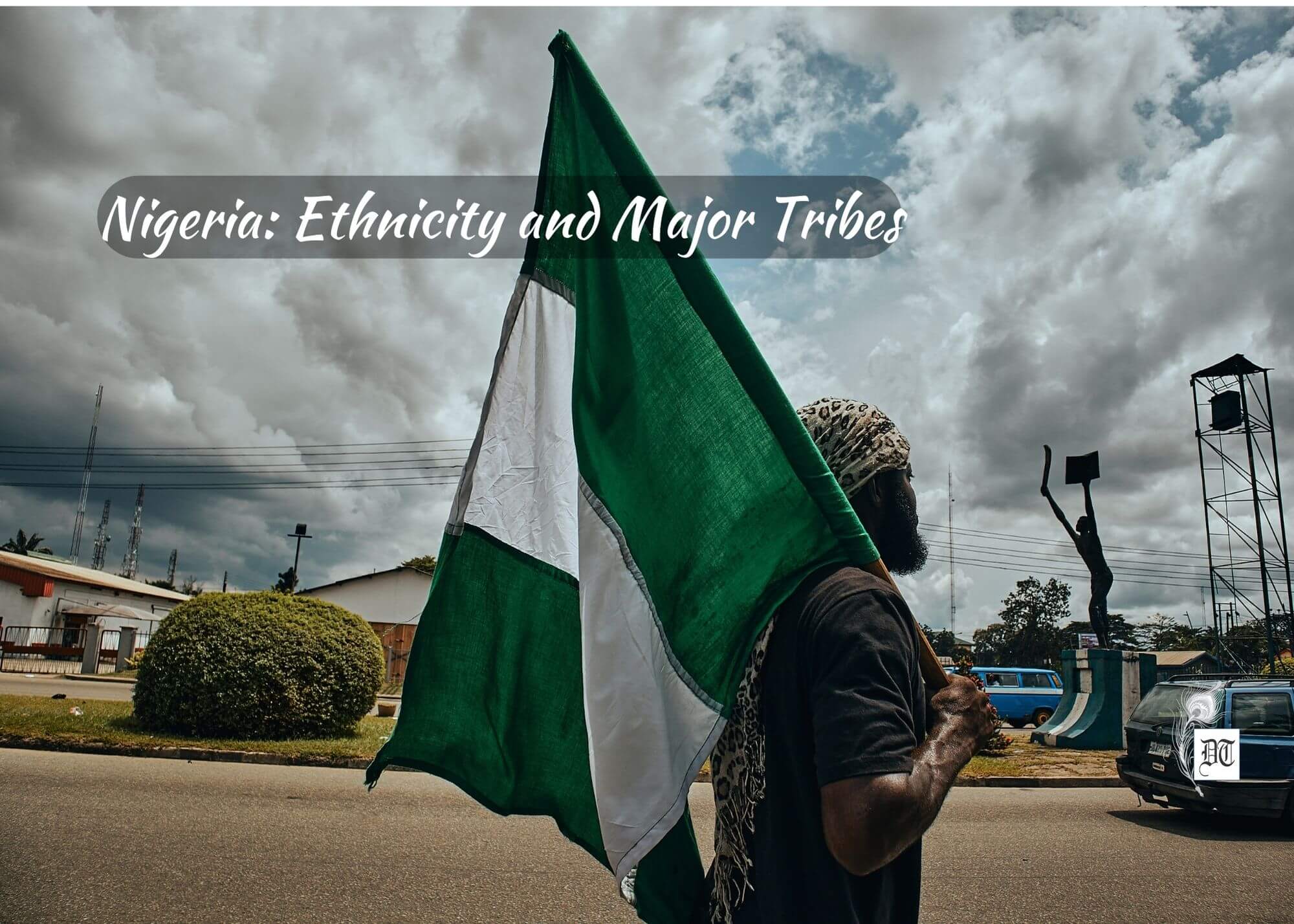When you think about Nigeria, one of the first things that come to mind is its incredible diversity. Tribes in Nigeria are like a colorful mosaic, each piece adding its own unique flair to the bigger picture. The country is home to over 250 ethnic groups, each with its own traditions, languages, and cultural nuances. From the bustling cities to the serene villages, the diversity of tribes in Nigeria is a story worth exploring.
You might be wondering why this matters, right? Well, understanding the tribes in Nigeria isn't just about learning geography or history. It's about diving into the heart of a nation that thrives on its cultural richness. Every tribe has a story, and these stories shape not only Nigeria but also the global perception of Africa.
So, whether you're a history buff, a culture enthusiast, or just someone curious about the world, this article will take you on a journey through the vibrant tapestry of tribes in Nigeria. We’ll explore their origins, traditions, languages, and the role they play in modern-day Nigeria. Ready to dive in?
Table of Contents
- Overview of Tribes in Nigeria
- Major Tribes in Nigeria
- Minor Tribes in Nigeria
- Language Diversity Among Tribes in Nigeria
- Cultural Practices of Tribes in Nigeria
- Tribal Conflicts in Nigeria
- Economic Contributions of Tribes in Nigeria
- Modern Influence on Tribes in Nigeria
- Tribal Leadership Structures
- The Future of Tribes in Nigeria
Overview of Tribes in Nigeria
Alright, let's get down to the nitty-gritty. Nigeria, often referred to as the "Giant of Africa," is a country with a population of over 200 million people. Among these, you'll find over 250 tribes, each with its own distinct identity. But what exactly does this mean? Think of it like a big family reunion where everyone brings something different to the table—some bring music, others bring dance, and a few bring traditional crafts.
Each tribe in Nigeria has its own language, customs, and traditions. Some tribes are more prominent than others, but that doesn't diminish the importance of the smaller ones. It's like a symphony where every instrument plays a crucial role in creating the final masterpiece. Understanding the tribes in Nigeria means understanding the complexity and beauty of this nation.
Why Are Tribes Important?
Tribes in Nigeria are more than just groups of people sharing a common heritage. They are the backbone of the country's social fabric. They influence everything from politics to economics to culture. For instance, the Hausa-Fulani in the north, the Yoruba in the west, and the Igbo in the east are some of the major tribes that have played significant roles in shaping Nigeria's history and development.
So, when we talk about tribes in Nigeria, we're not just talking about ethnic groups. We're talking about the very essence of what makes Nigeria unique. It's a story of survival, adaptation, and resilience in the face of challenges.
Major Tribes in Nigeria
Now, let's zoom in on the big players. The three major tribes in Nigeria are the Hausa-Fulani, Yoruba, and Igbo. Together, they make up about 70% of the country's population. But what makes these tribes stand out?
Hausa-Fulani Tribe
The Hausa-Fulani are predominantly found in northern Nigeria. They are known for their Islamic heritage and influence on Nigerian politics. The Hausa language is one of the most widely spoken in Nigeria, and their cultural practices, such as the Durbar festival, attract visitors from all over the world.
Yoruba Tribe
Move over to the western part of Nigeria, and you'll find the Yoruba people. Known for their rich artistic traditions, the Yoruba are masters of sculpture, music, and dance. Their language, Yoruba, is also widely spoken and has influenced many aspects of Nigerian culture.
Igbo Tribe
In the east, the Igbo tribe dominates. The Igbo are known for their entrepreneurial spirit and have played a significant role in Nigeria's economic development. Their language, Igbo, is one of the official languages of Nigeria, and their cultural festivals, like the New Yam Festival, are celebrated with great enthusiasm.
Minor Tribes in Nigeria
While the major tribes get most of the attention, the minor tribes in Nigeria are equally fascinating. These smaller tribes, such as the Tiv, Ijaw, Edo, and Kanuri, each have their own unique stories to tell.
Tiv Tribe
The Tiv people, located in the central region of Nigeria, are known for their intricate beadwork and traditional dances. Their language, Tiv, is spoken by over 3 million people, and their cultural practices are a testament to their rich heritage.
Ijaw Tribe
Head down to the Niger Delta, and you'll find the Ijaw tribe. They are the largest ethnic group in the region and are known for their fishing and trading skills. The Ijaw people have a deep connection to the water, and their cultural festivals often revolve around this element.
Language Diversity Among Tribes in Nigeria
Language is a crucial part of any tribe's identity. In Nigeria, this diversity is evident with over 500 languages spoken across the country. While English is the official language, the indigenous languages play a significant role in preserving cultural heritage.
Some of the most widely spoken languages include Hausa, Yoruba, and Igbo. However, there are many others like Fulfulde, Kanuri, and Edo that are equally important. This linguistic diversity is a reflection of the country's rich cultural tapestry.
Cultural Practices of Tribes in Nigeria
Every tribe in Nigeria has its own set of cultural practices that define its identity. These practices range from traditional dances and music to religious ceremonies and festivals.
- Traditional Dances: From the Atilogwu dance of the Igbo to the Bata dance of the Yoruba, traditional dances are a vibrant part of Nigerian culture.
- Religious Ceremonies: Many tribes in Nigeria practice a mix of traditional religions, Christianity, and Islam. These religious ceremonies are often colorful and full of symbolism.
- Festivals: Festivals like the Durbar in the north, the New Yam Festival in the east, and the Osun-Osogbo Festival in the west are celebrated with great enthusiasm and attract visitors from all over the world.
Tribal Conflicts in Nigeria
Unfortunately, the diversity of tribes in Nigeria has also led to conflicts over the years. These conflicts are often fueled by political, economic, and religious differences. However, it's important to note that these conflicts are not representative of the entire population.
Efforts are being made to promote peace and understanding among the various tribes. Initiatives like inter-tribal marriages, cultural exchange programs, and dialogue platforms are helping to bridge the gaps between different ethnic groups.
Economic Contributions of Tribes in Nigeria
Each tribe in Nigeria contributes uniquely to the country's economy. The Hausa-Fulani are known for their agricultural prowess, the Yoruba for their artistic skills, and the Igbo for their entrepreneurial spirit. Together, they form the backbone of Nigeria's economic landscape.
Moreover, the cultural heritage of these tribes attracts tourists from all over the world, contributing significantly to the tourism industry. Traditional crafts, festivals, and cultural practices are a major draw for visitors.
Modern Influence on Tribes in Nigeria
As Nigeria continues to modernize, the influence of globalization is felt across all tribes. While some traditions remain unchanged, others are adapting to the modern world. The younger generation is embracing technology and education, while still holding onto their cultural roots.
This balance between tradition and modernity is what makes the tribes in Nigeria so fascinating. It's a story of evolution, where the old and the new coexist in harmony.
Tribal Leadership Structures
Leadership structures vary greatly among the tribes in Nigeria. Some tribes have monarchs, while others have council systems. These leaders play a crucial role in preserving the cultural heritage of their respective tribes.
For instance, the Emirs in the north, the Obas in the west, and the Eze in the east are respected figures who guide their people through traditional and modern challenges. Their influence extends beyond cultural matters, often impacting political and economic decisions.
The Future of Tribes in Nigeria
Looking ahead, the tribes in Nigeria are poised to play an even more significant role in shaping the country's future. As the younger generation becomes more involved in politics, economics, and culture, the influence of tribal heritage is expected to grow.
However, challenges remain. Issues like tribal conflicts, economic disparities, and cultural preservation need to be addressed. With the right policies and initiatives, the tribes in Nigeria can continue to thrive and contribute to the nation's development.
Kesimpulan
So there you have it, a deep dive into the world of tribes in Nigeria. From the major tribes like the Hausa-Fulani, Yoruba, and Igbo to the smaller ones like the Tiv and Ijaw, each tribe adds its own unique flavor to the Nigerian tapestry. Understanding these tribes is essential to understanding the country itself.
We’ve explored their languages, cultural practices, economic contributions, and the challenges they face. But the story doesn’t end here. The tribes in Nigeria are a living, breathing entity, evolving with the times while holding onto their rich heritage.
So, what’s next? We invite you to share your thoughts, ask questions, or even suggest topics for future articles. The more we learn about each other, the better we understand the world around us. Keep the conversation going, and let’s continue to celebrate the diversity that makes Nigeria truly unique.



Detail Author:
- Name : Miss Sibyl Jacobson
- Username : braxton35
- Email : urogahn@hotmail.com
- Birthdate : 1978-12-28
- Address : 21319 Christiansen Pike Suite 749 Tessberg, OH 41836
- Phone : +16265711287
- Company : Runolfsdottir PLC
- Job : Letterpress Setters Operator
- Bio : Culpa quod et eius quo quis. Hic natus vel veritatis. Vel totam quos pariatur qui molestiae magnam. Consequatur itaque qui voluptatibus et laboriosam et.
Socials
instagram:
- url : https://instagram.com/abigale_real
- username : abigale_real
- bio : Officiis dolorem esse magnam occaecati. Ut quia labore ut tempora a a. Sed velit non provident.
- followers : 2848
- following : 1464
twitter:
- url : https://twitter.com/abigale_dev
- username : abigale_dev
- bio : Sunt sit blanditiis consequatur explicabo. Ex aliquam cupiditate ut quasi. Quos non sed et qui commodi error.
- followers : 2504
- following : 880
tiktok:
- url : https://tiktok.com/@abigale_xx
- username : abigale_xx
- bio : Ut perferendis consequatur aspernatur.
- followers : 5778
- following : 115
linkedin:
- url : https://linkedin.com/in/ziemann2011
- username : ziemann2011
- bio : Enim fugit recusandae dolore beatae id eos.
- followers : 5570
- following : 2360
facebook:
- url : https://facebook.com/ziemann1981
- username : ziemann1981
- bio : Ut reiciendis adipisci vero. Eos error repellat voluptatem maiores id maiores.
- followers : 4335
- following : 2788